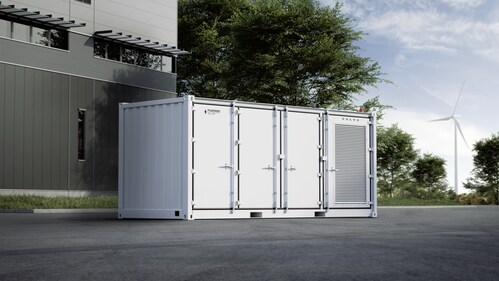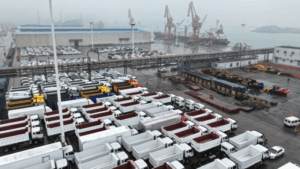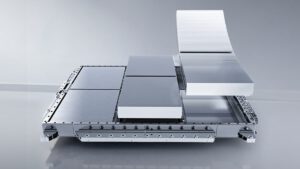Volvo Energy, a division of the Volvo Group, introduced the PU2000 Battery Energy Storage System (BESS) on October 1, 2025, during its Customer Day event in Gothenburg, Sweden. Designed, developed, and manufactured in Sweden, the PU2000 is intended to enhance energy optimization and resilience while accelerating the shift to electrified operations. This system represents a strategic extension of the company’s offerings into integrated energy solutions.
At the Customer Day gathering, attendees—including customers, partners, and members of the media—observed live demonstrations of the PU2000 in action. The presentation showcased the system’s capabilities in reducing energy costs, maintaining operational continuity, and dynamically managing site energy. Participants also reviewed its performance monitoring and safety features, highlighting seamless compatibility with the Volvo Site Controller and the Volvo Cloud Energy Management System (VEMS).
Elisabeth Larsson, Senior Vice President and Head of Sales & Services at Volvo Energy, remarked that the PU2000 moves beyond theoretical discussions of the energy transition to practical implementation. According to Larsson, the system helps customers optimize energy expenditures, increase resilience, lower their carbon footprint, and support broader electrification objectives. It aligns with the Volvo Group’s commitment to leading the green transition by addressing grid constraints and enhancing operational security.
The PU2000 integrates three core benefits in one solution. First, it offers seamless connectivity with VEMS and the Site Controller for real-time monitoring and cost-optimized energy use. Second, it meets rigorous safety, quality, and security standards, featuring advanced fire prevention, liquid cooling, PFAS-free direct-injection fire suppression, robust cybersecurity measures, and stringent supply chain controls. Third, it delivers adaptable performance, including peak shaving, load shifting, energy market participation, EV charging integration, and island-mode operation, ensuring long-term value across diverse applications.
Source: Batteries News
















